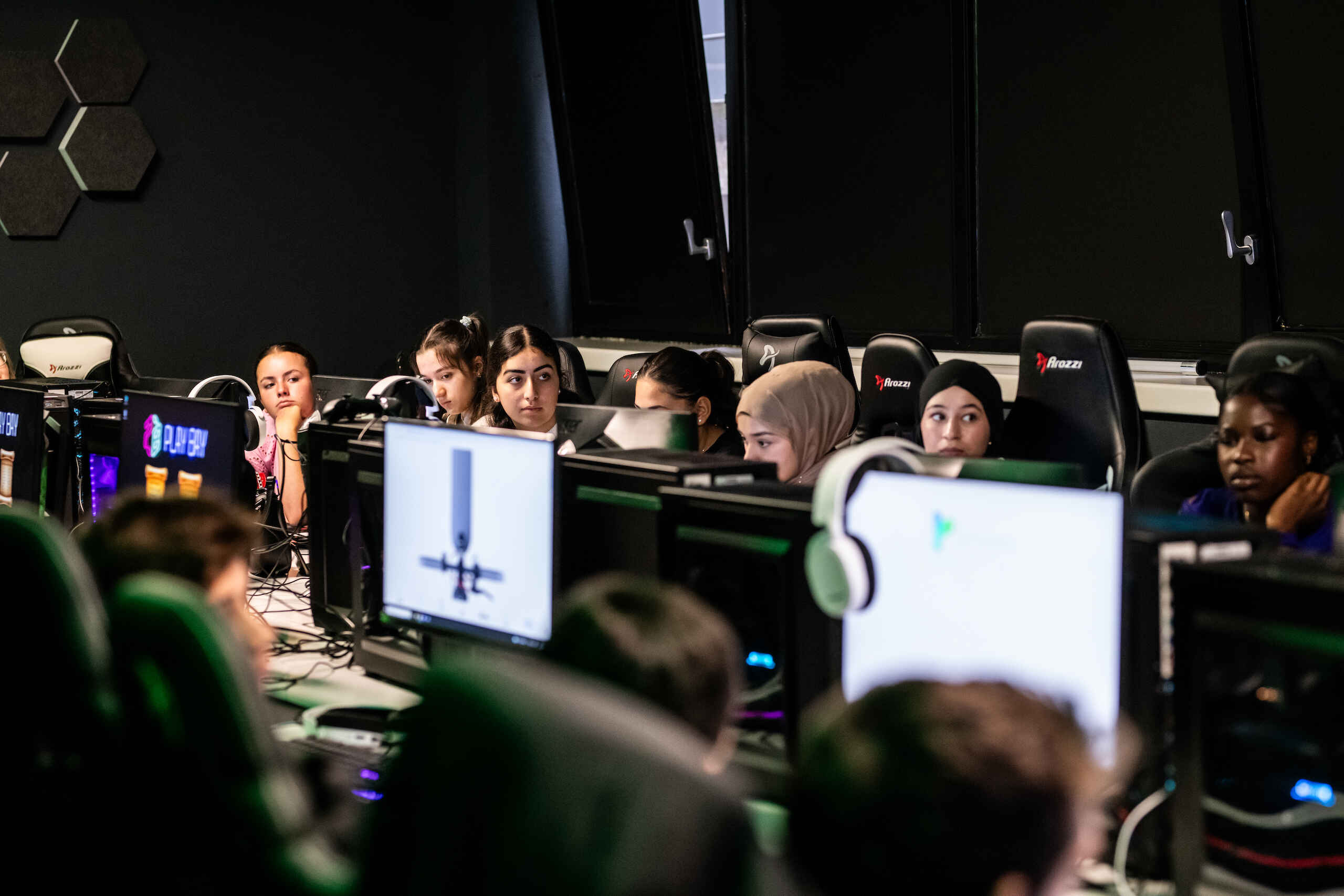
Photo: Körber-Stiftung/Marcel Schwickerath
Youth Workshop eCC23: Stories of Resistance in Games
What happens when you let a group of young people design games in a very short time that deal with their interpretation of memory and resistance? As part of our eCommemoration Convention this year, we tried it out.
The aim of our eCommemoration Convention is also to get in touch with young people and get them excited about modern remembrance culture. In doing so, we meet them where they stand – in games. In the course of our event this year, there was a youth workshop. With “Stories of Resistance in Games”, we showed interested young people what remembering actually means and how they themselves can contribute to the culture of remembrance. For this purpose, we invited class 10a of the Helmut-Schmidt-Gymnasium to the eSport Centre “PlayBay” in Hamburg.
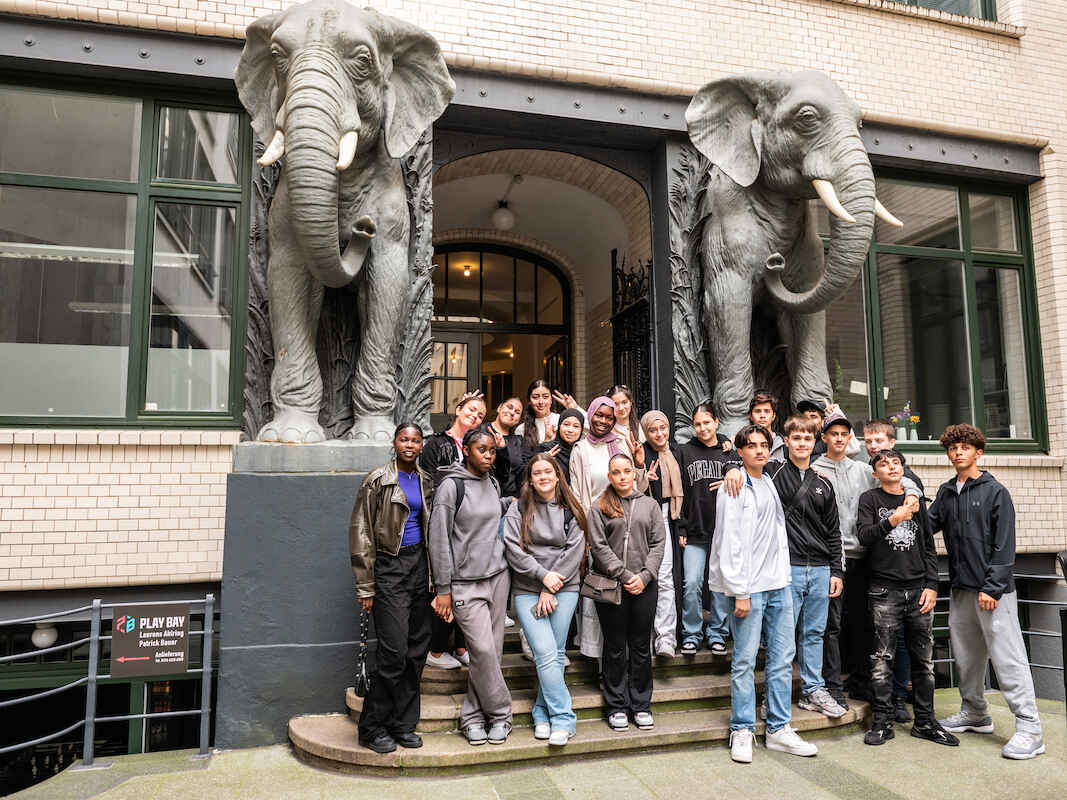
Photos: Körber-Stiftung/Marcel Schwickerath 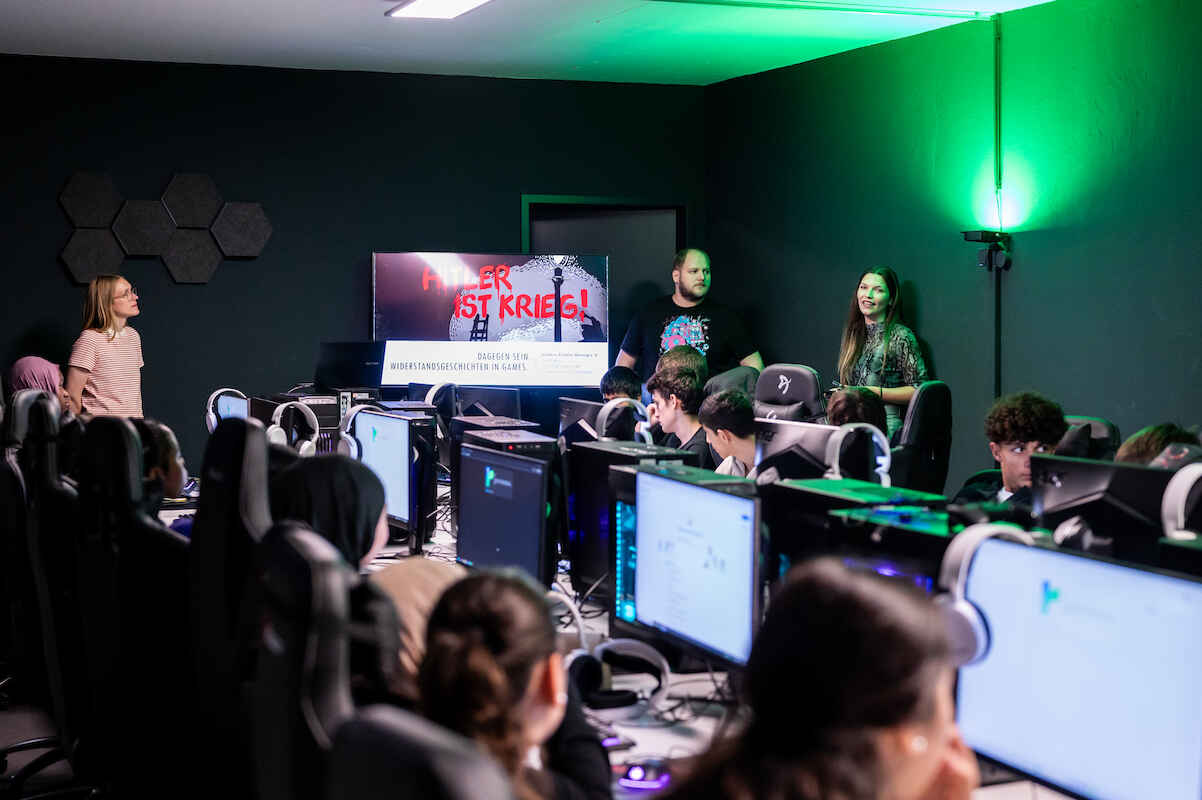
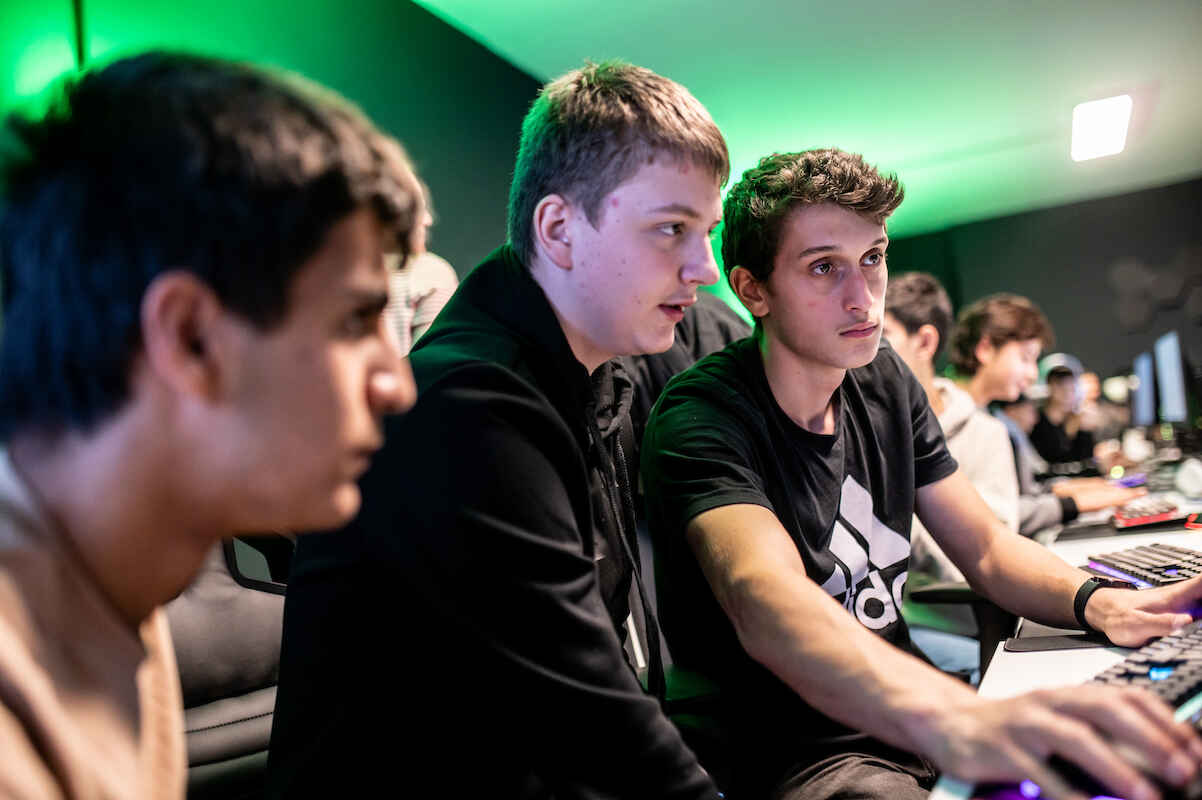
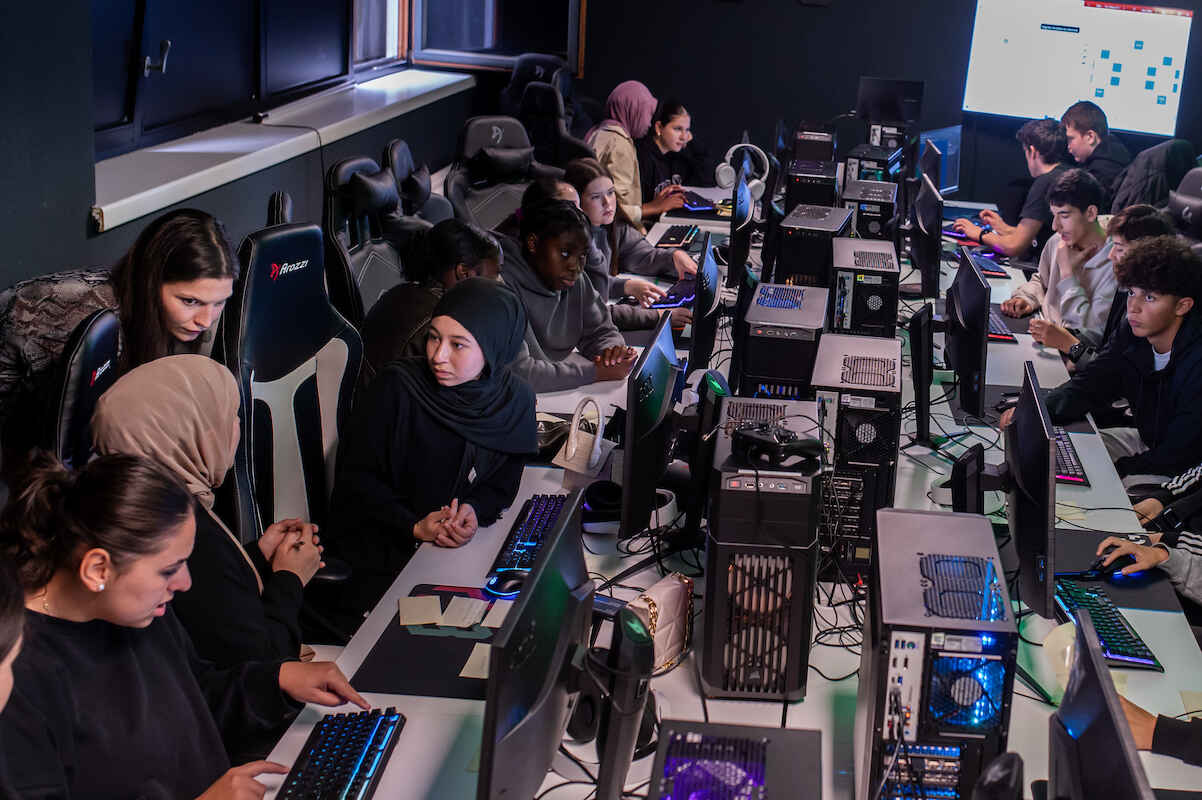
Creating your own game with the help of open source tools
The two media educators Vera Marie Rodewald and Thilo Lübke from the initiative Creative Gaming e.V. took the students on a journey of creative exploration. The aim of the workshop was to design point-and-click games. They were inspired by “Through the Darkest of Times” – a historical video game about the efforts of a resistance group from Berlin during the Nazi era.
The young people went to work in pairs. Using the open-source tool “Twine”, they were to create their own stories of resistance. In the process, they did not just develop games. Rather, they used everyday examples to discuss problems of our time, raise current social discourses and incorporate personal experiences. In the end, games were created that debate the oppression of women in Iran, that deal with anti-Semitism and the abuse of power by teachers, stories about experiences of racism and the search for identity.
How games help to lead current discourses
In a very short time, the students managed to design games that reflect our times. It is not only their natural use of technology that is remarkable. The young people demonstrated their very own interpretation of resistance, which is characterised by clear moral concepts of this world. They show the potential of games to lead current discourses in new formats – away from museums and monuments. Modern technologies offer new ways of writing history that are more inclusive, individual and interactive.
The capacity of digital games to convey history, values and norms is enormous. At a time when gaming is a ubiquitous and influential form of entertainment for young people and adults, the pupils of the Helmut Schmidt Gymnasium used this medium to tell stories of resistance, contradiction, but also of hope. They prove that gaming can be a tool for change, a way to promote understanding and empathy, and a platform to inspire others to take a stand. Because history is not static, it is not set in stone. Rather, history is alive, and it can be shaped.